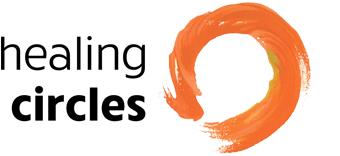Caregiving for loved ones
I began attending a healing circle while caregiving for my brother and sister-in-law. She was suffering from multiple chronic diseases all wrapped in quickly accelerating dementia, and my brother was exhausted from caregiving. He was experiencing flare-ups of his own medical issues, rendering him unable to continue to care for her alone.
The challenge of caregiving was immense for me, and I was shocked to learn (once I was deep in its throes) how little I had understood about how difficult it can be to take on the responsibility for another grown person. Healing circles for caregivers provided a place in which I could set my experience alongside the experience of others and get perspective, be heard, and take time and space to reflect on how best to continue in ways that would sustain both me and my loved ones.
When a person first discovers that their loved one is headed down the road of dementia or cancer or some other devastatingly debilitating illness, the focus tends to go directly to the person with the diagnosis. But as we get deeper into the situation, learn its scope, begin to understand the changes that are happening to our loved one’s body and mind, and address their impact, we begin to recognize our own exhaustion, and it finally occurs to us that maybe we need some help, too.
The healing circle for caregivers provided a landing zone; a quiet place to hear myself think, and to bear witness to others who are making their way through their own caregiving journey. These circles provide a container filled with the special kind of silence in which we can see and hear ourselves again, whole and wise, albeit tired.
In circle, we experience the level of close listening to our stories that is hard to find among friends or family who have a stake in our caregiving situation. We share our stories for our own purposes, and often learn that they are just what another participant needed to hear to inform their own journey.
One participant might explain the delicate balance of taking responsibility for someone who can’t care for themselves without usurping that person’s autonomy, then share about the intellectual and physical toll managing that balance takes.
Another might reflect how difficult it is to quickly switch from negotiating with a medical insurance company to cleaning up and then settling down a loved one who has soiled themselves and is crying because they are humiliated by their own body.
Some days a participant’s story might be about wins–big or little–how they took care of themself that day, with the simple act of eating a peanut butter sandwich on the front steps so as not to be interrupted while eating their lunch, or how they deftly transformed a confused tantrum into a dance party. Some share about their gratitude for dawn or chocolate, or just sleeping through the night. One might reflect that the sun is shining, the peas are in abundant, glorious bloom, and their partner is still dying.
Each uninterrupted sharing is honored and witnessed as the truth of today. We harvest what will fuel us on our ongoing journey and, in closing, know that we do not provide care alone. Inside homes all over this globe, deep, muscular, love is in action behind closed doors each day. The strength of other humans who are motivated to provide respectful loving care in the face of all the hurdles that emerge buoys and inspires us to go back in with love, knowing we have a place to recharge.
Rosalynn Carter says, “There are only four kinds of people in the world––those who have been caregivers, those who are currently caregivers, those who will be caregivers, and those who will need caregivers.”
We couldn’t agree more.



